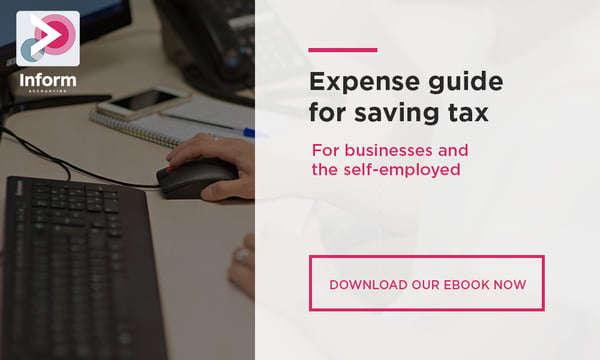BLOG
Spread a Little Christmas Cheer- Tax Free Christmas Gifts...

The Covid-19 pandemic has placed the office Christmas party firmly off the menu this year. Regardless of what restrictions are in place over the Christmas season, many employers will want to take the opportunity to spread some seasonal cheer amongst workers, who may have been furloughed or working from home for much of 2020.
The impact of any goodwill gesture is somewhat diminished if it comes with an associated tax bill. This is where the trivial benefits exemption can come into its own, enabling employers to provide employees with tax-exempt Christmas gifts, while keeping the costs low at a time when many businesses are struggling financially. Personal and family companies can similarly make use of the exemption.
Nature of the exemption
Under the trivial benefits exemption, a benefit is exempt from income tax and National Insurance if all of the following conditions are met.
- The cost of providing the benefit does not exceed £50.
- The benefit is not in the form of cash or a non-cash voucher.
- The employee is not contractually entitled to the benefit.
- The benefit is not provided in recognition of, or in anticipation of, services performed as part of the employee’s employment duties.
Where a benefit is provided to a group of people and it is impracticable to work out the exact cost of providing it to each recipient, the average cost is used to determine whether the benefit is trivial.
Directors of close companies (together with members of their family or household) can only receive tax-free trivial benefits to a maximum value of £300 in a tax year. For other recipients, there is no annual limit (but each individual trivial benefit must cost £50 or less).
Seasonal gifts
The following example illustrates how the trivial benefits exemption can be utilised to provide tax-free Christmas gifts to employees.
Example 1
An employer purchases 100 turkeys to be given to employees at Christmas. The total bill is £4,800. The turkeys vary slightly in weight but are not priced individually.
As it would be impracticable to work out the exact cost of the turkey provided to each individual employee, the average cost of £48 is taken as the cost of the benefit. Assuming all the other conditions are met, the gift of the turkey falls within the trivial benefit exemption and is free from tax.
Gift card trap
Care should be taken using gift cards which are topped up on several occasions. Rather than evaluating each use of the card separately for the purposes of the trivial benefits exemption, HMRC look at the total cost of providing benefits via the card in the tax year in question. The following example illustrates the trap.
Example 2
An employee is given a gift card at Christmas which can be exchanged in a particular store for a gift. The card costs the employee £30 to provide. The card is topped up by a further £30 on the employee’s birthday. Although each top-up costs the employer less than £50, the total cost of providing the employee with a gift card is £60 for the tax year. As this exceeds the £50 trivial benefit limit, the exemption does not apply.
Instead, the employer should give the employee separate gifts costing £30 each, both of which would be exempt.
Inform are here to help you so please contact us if you need further support or advice on tax related matters.
Read more of Inform's tax blogs:
Inform Accounting wins at the Accounting Excellence Awards
Five furlough changes you need to know




.jpg?width=1500&height=1000&name=amy-hirschi-K0c8ko3e6AA-unsplash-(5).jpg)

